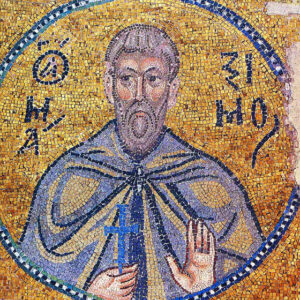
Episode 212: Esoteric Orthodoxy in East Rome: Jonathan Greig on Maximus the Confessor
We head back to Constantionple with Jonathan Greig at the controls, to discuss the quintessentially Orthodox mystic, Maximus the Confessor. Late-Platonist apophasis meets hard-core ascesis, and Maximus follows the theology where it wants to go, sometimes to his own cost.










